Search Definitions
Browse Content (p. 183)
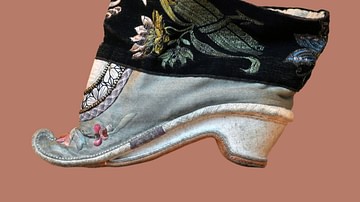
Definition
Foot-Binding
Foot-binding was a practice first carried out on young girls in Tang Dynasty China to restrict their normal growth and make their feet as small as possible. Considered an attractive quality, the effects of foot-binding were painful and permanent...
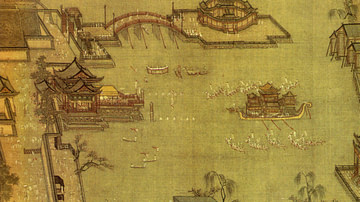
Definition
Song Dynasty
The Song (aka Sung) dynasty ruled China from 960 to 1279 CE with the reign split into two periods: the Northern Song (960-1125 CE) and Southern Song (1125-1279 CE). The Northern Song ruled a largely united China from their capital at Kaifeng...
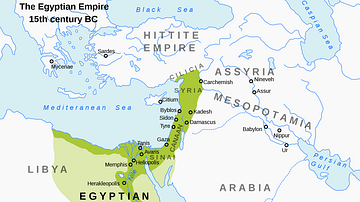
Definition
Egyptian Empire
The Egyptian Empire rose during the period of the New Kingdom (c. 1570- c. 1069 BCE), when the country reached its height of wealth, international prestige, and military might. The empire stretched from modern-day Syria in the north to modern-day...
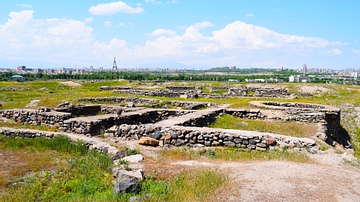
Definition
Shengavit
The Shengavit archaeological site is an ancient settlement occupied from c. 3500 - c. 2200 BCE and is located in a southern suburb of what is presently Yerevan, Armenia. The site is nearly 3 hectares (7 acres) in size - it was originally...

Definition
Sui Dynasty
The Sui Dynasty (581-618 CE) was a brief one with only two reigning emperors but it managed to unify China following the split of the Northern and Southern Dynasties period. As had happened previously in Chinese history, a short-lived dynasty...
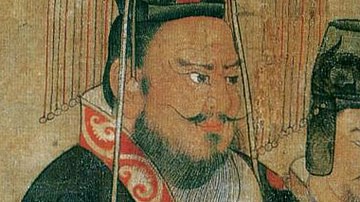
Definition
Chinese Emperor
The emperors of ancient China had tremendous power and responsibility. Called the 'Son of Heaven', he (and once she) was given a divine right to rule over all people but was expected to promote their best interest and not his own. An absolute...

Definition
Ancient Egyptian Vizier
The vizier in ancient Egypt was the most powerful position after that of king. Known as the djat, tjat, or tjati in ancient Egyptian, a vizier was the equivalent of the modern-day prime minister of the nation who actually saw to the day-to-day...
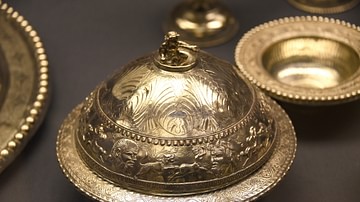
Definition
Silver in Antiquity
Silver had great value and aesthetic appeal in many ancient cultures where it was used to make jewellery, tableware, figurines, ritual objects and rough-cut pieces known as hacksilver which could be used in trade or to store wealth. The metal...
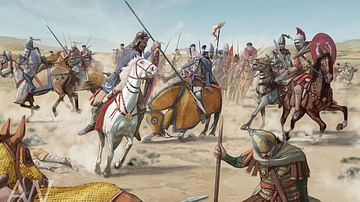
Definition
Battle of Immae
The Battle of Immae (272 CE) was fought between the forces of the Roman emperor Aurelian (270-275 CE) and those of the Palmyrene Empire of Zenobia (267-273 CE) resulting in a Roman victory and, ultimately, the capture of Zenobia and an end...

Definition
Uluburun Shipwreck
The Uluburun shipwreck is a Bronze Age vessel discovered lying off the coast of Kas, Turkey. The ship, probably originally from Phoenicia/Canaan, dates to between 1330 and 1300 BCE and was carrying a full cargo of trade goods, perhaps from...